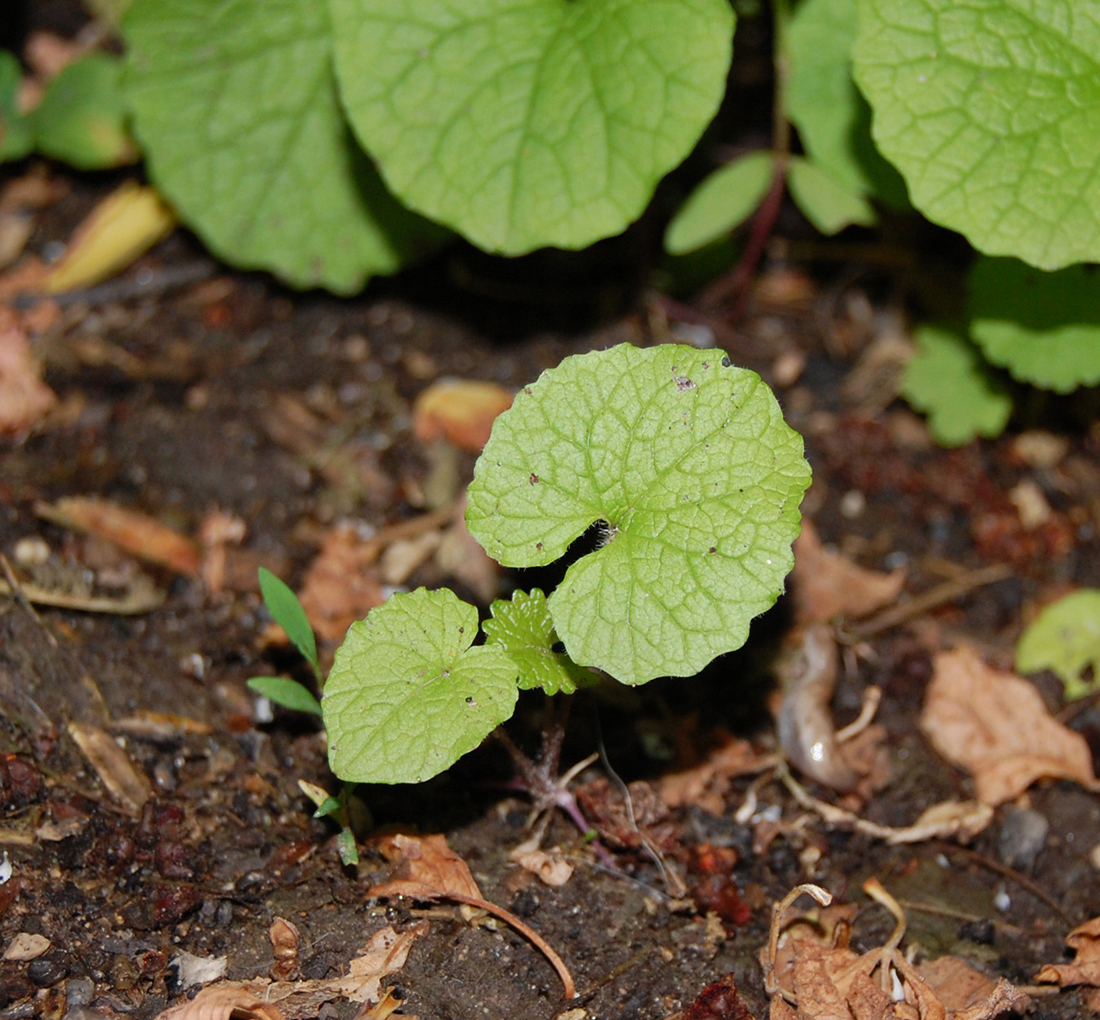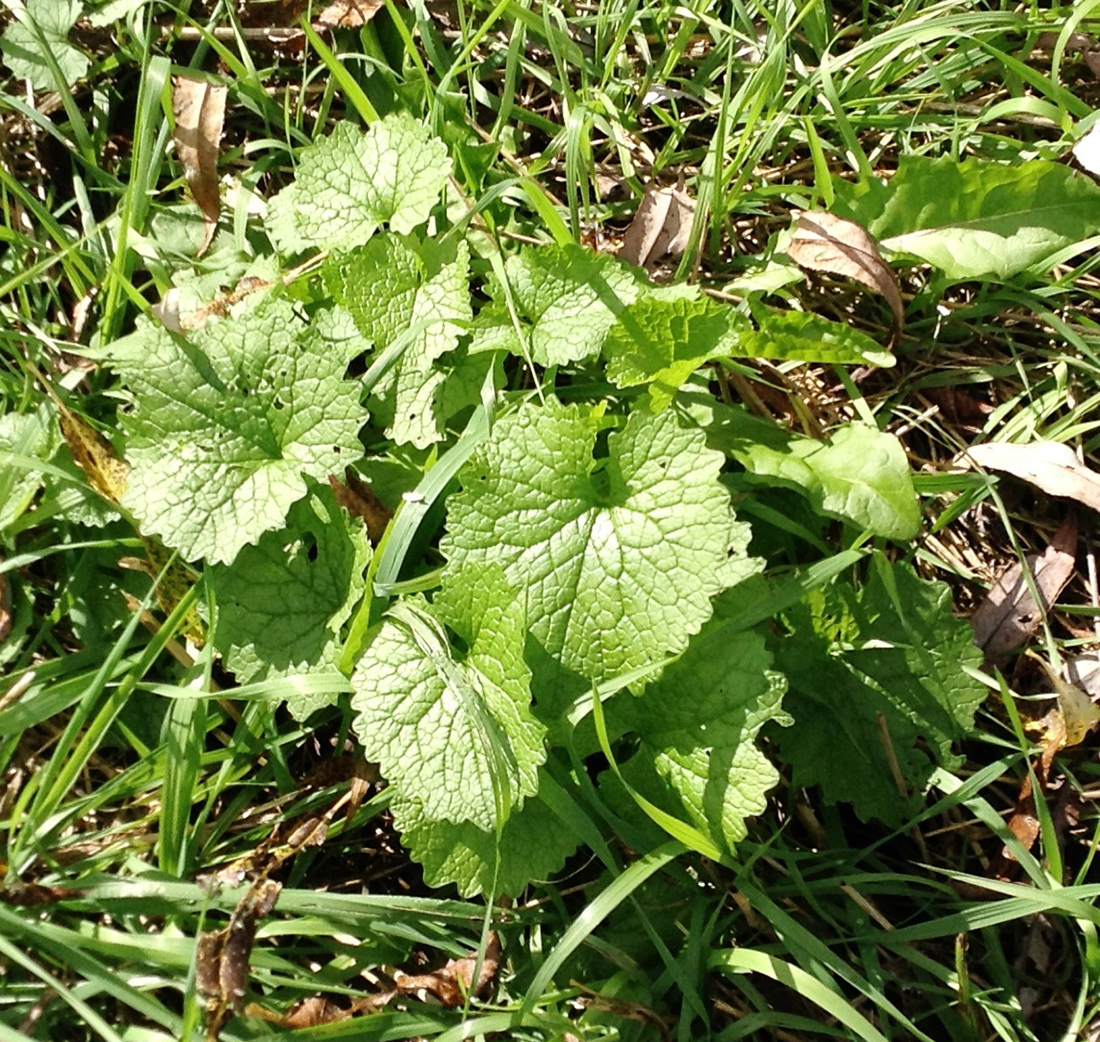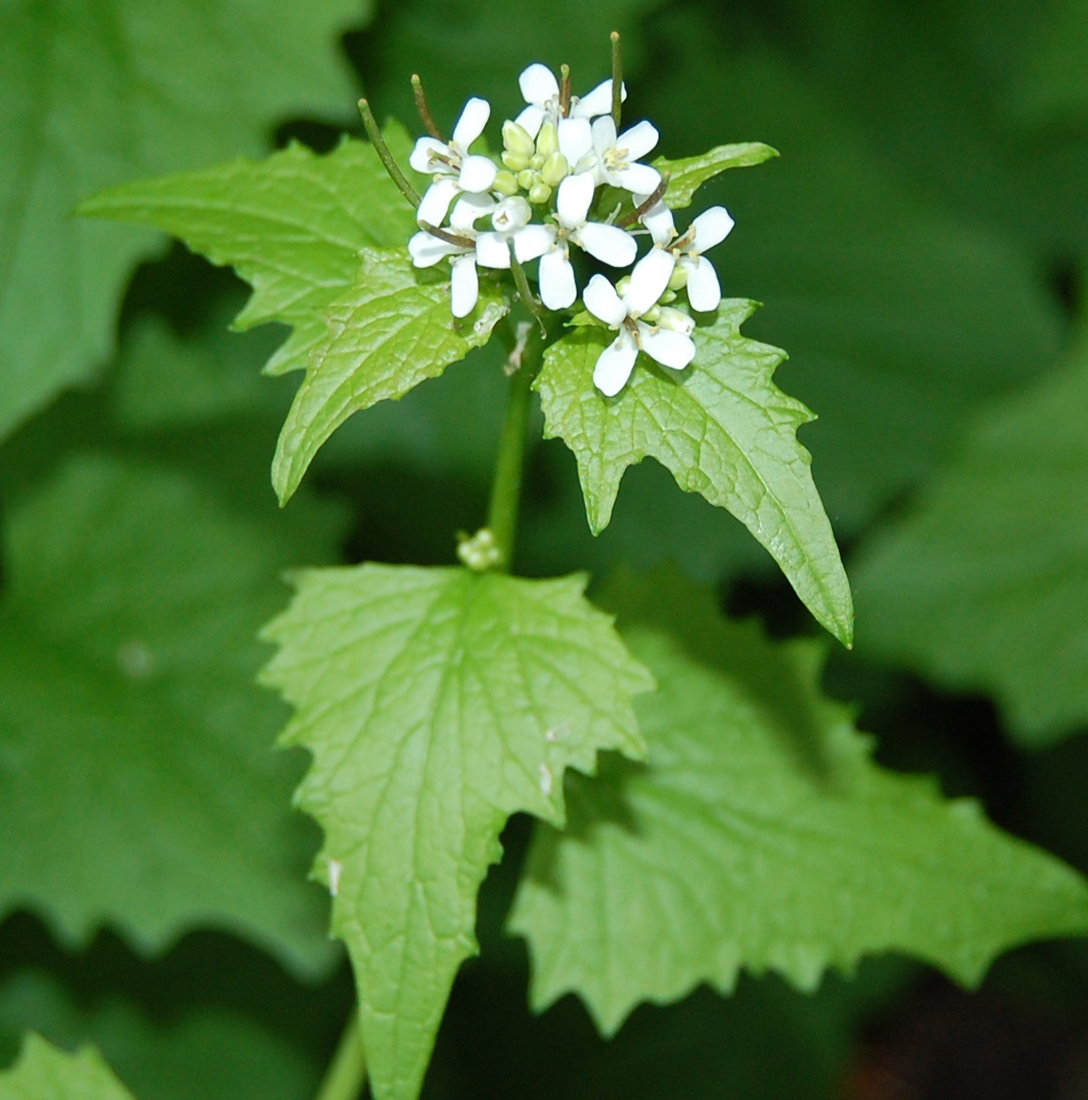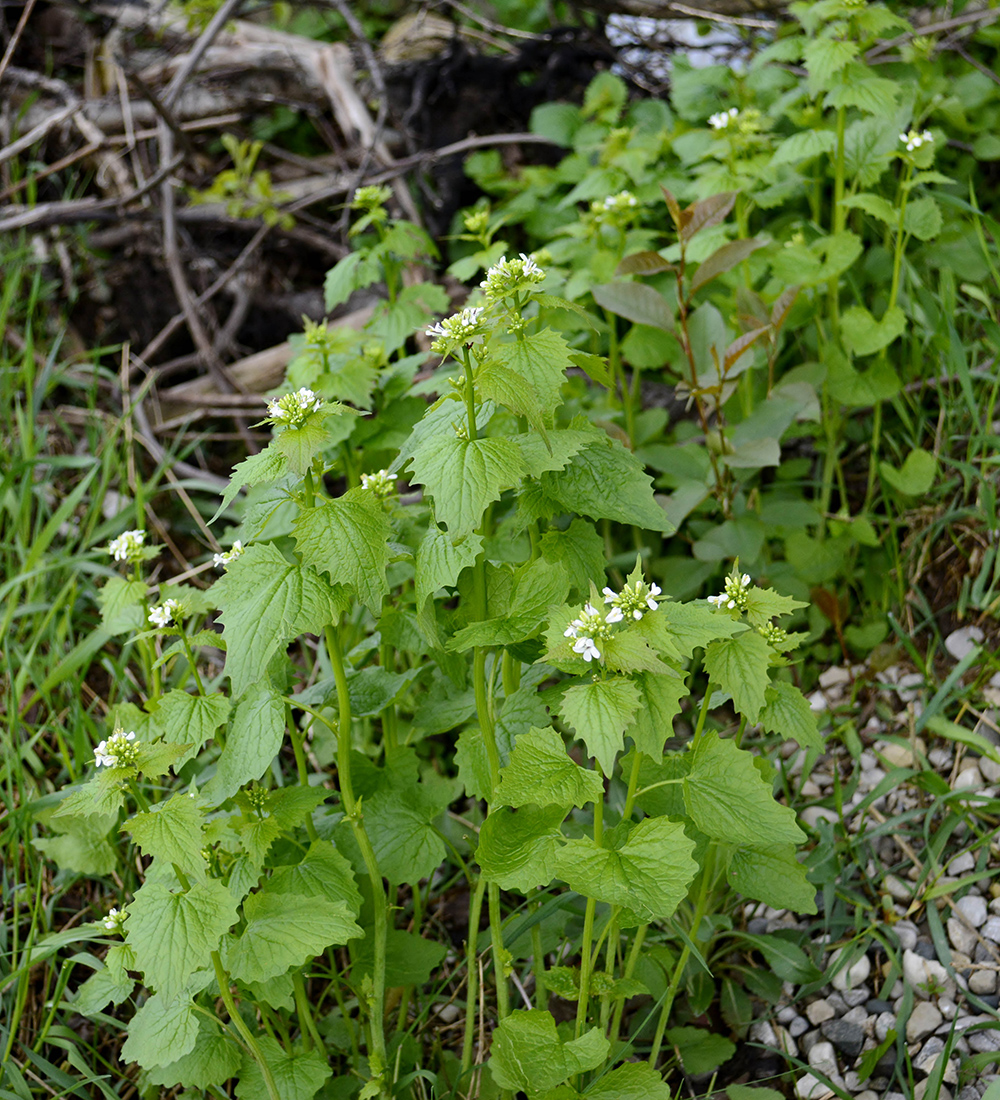Garlic Mustard
- Mustard (Brassicaceae family):
- Alliaria petiolata (M. Bieb.) Cavara & Grande
- EPPO code:
- ALAPE
- Other names:
- Stinky mustard
Species information
- Life cycle:
- Annual, winter annual or biennial.
- Propagation:
- Reproduces by seeds, which typically remain dormant until at least one year after dispersal.
- Emergence:
- Seeds germinate in the early spring.
- Habitat:
- Garlic mustard is found throughout Ontario, typically in woodlots, on the edge of woodlots and in waste areas. This species is rarely found in cultivated fields.
- Competitiveness:
- Although garlic mustard is edible and contains a higher value of vitamin C on a per-weight basis than oranges, it is mainly viewed as an invasive weed that replaces native vegetation (Cavers et al., 1979).
Identification clues
Seedlings
- Cotyledons:
- Elongated to oblong.
Leaves
- First leaves:
- Garlic mustard’s first leaves grow in a basal rosette, are kidney shaped with a broad rounded tip, and have margins with shallow rounded teeth. The leaves emit a garlic- like odour when tissue is crushed.
- Mature leaves:
- Stem leaves are alternate, heart-shaped to triangular in shape, with more coarsely toothed margins. They also emit the same garlic-like odour.
Mature plant
- Stem:
- Garlic mustard’s stem is erect and smooth, and reaches almost one metre in height.
- Flowers:
- small, white, 4-petaled flowers are grouped in small clusters at the tip of the plant or in leaf axils. They give rise to the characteristic long and slender seed pods of the mustard family.
- Seeds:
- Small, round and black, garlic mustard’s seeds are 3 mm in diameter and emit a garlic- like odour.
- Roots:
- Taproot
Often mistaken for
I know it's not Stinkweed because the basal leaves of garlic mustard are kidney-shaped with broad rounded tips and round toothed margins, while the leaves of stinkweed are elongated and have wavy- toothed margins.




Updated: January 13, 2023
Published: January 13, 2023